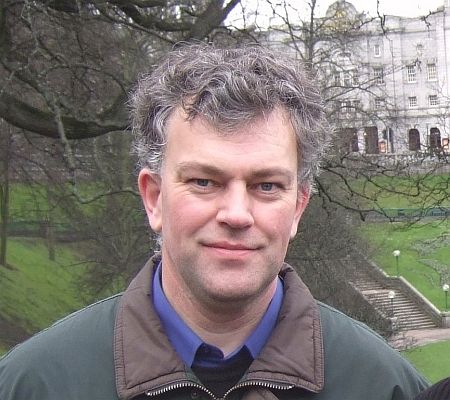Two Aberdeenshire councillors are calling for an end to the Council Tax freeze as their council faces up to £50 million in budget cuts over the next four years.
The call comes in the week Aberdeenshire and other councils across Scotland set their revenue budgets for the next financial year.
“This cannot go on,” said Green councillor Martin Ford.
“It’s the elephant in the room on budget day. Most councillors know the Council Tax freeze is unsustainable, but aren’t prepared to say so.”
Allowing for inflation, a freeze in cash terms is actually a real-terms cut in income to the Council. Meanwhile, Aberdeenshire is having to plan for demand-led spending pressures due to rising school rolls and increasing numbers of very elderly people.
“The inevitable consequence of a continuation of the Council Tax freeze is more cuts in public services,” said Democratic Independent councillor Paul Johnston.
“Expecting the Council to do more with less, year after year, is not realistic.”
The Scottish Government has ensured that councils do not increase the Council Tax by threatening a lower grant settlement if the Council Tax is increased – ensuring any reasonable increase in Council Tax would leave the council in an even worse position financially than maintaining the Tax freeze.
“Local Government has effectively been reduced to local administration,” said Cllr Martin Ford.
“The Council’s total budget is essentially decided for it by the Scottish Government. The councillors are just left with deciding which are the least damaging cuts to make – the alternative option of avoiding cuts by raising some additional tax revenue having been blocked.
“The decision on the balance to strike between cutting council services or raising some additional tax income should be taken locally, not by the SNP government in Edinburgh.”
The current Band D Council Tax in Aberdeenshire is £1,141. A one per cent increase would result in a Band D rate of £1,152, or eleven pounds a year more, only 21 pence extra per week. An increase equal to the current Retail Price Index (RPI) of 1.6 per cent would see the Aberdeenshire Band D Council Tax set at £1,159.
“Scottish Government politicians must trust the people of Aberdeenshire with tax raising powers, in the same way as they want tax powers from Westminster,” said Cllr Paul Johnston.
“This is all about trust on tax. Trust Aberdeenshire to take decisions on tax for Aberdeenshire.”
Cllr Ford added:
“Even a one per cent rise in the Council Tax would prevent some cuts in public services,”
Aberdeenshire Council is budgeting for a Council Tax income in the next financial year of £124.658 million. A one per cent increase in the Council Tax would increase revenue to £125.905 million. An RPI-linked 1.6 per cent increase in the Council Tax would bring the Council almost £2 million extra income.
“An extra £2 million annual income would certainly not enable the Council to avoid cutting some services over the next several years,” said Cllr Paul Johnston.
“But it would prevent the most undesirable cuts.”
- Comments enabled – see comments box below. Note, all comments will be moderated.
[Aberdeen Voice accepts and welcomes contributions from all sides/angles pertaining to any issue. Views and opinions expressed in any article are entirely those of the writer/contributor, and inclusion in our publication does not constitute support or endorsement of these by Aberdeen Voice as an organisation or any of its team members.]

Council tax should be scrapped altogether and the poll tax reintroduced, it was a much fairer system where everyone pays the same for local services such as schools, rubbish collection, roads and street lighting. Under the council tax system a couple living in a band E house pays £2005.96 in Aberdeen City and £1,896.71 in the Shire a family of 4 adults in a band A house are paying £1094.16 in the city and £1,034.57 in the shire. Everyone in full time employment should pay a community charge to pay for local services.
I pay £240 a Month, a scandal it’s so high in the first place, if the councils were properly ran they wouldn’t have a shortfall.